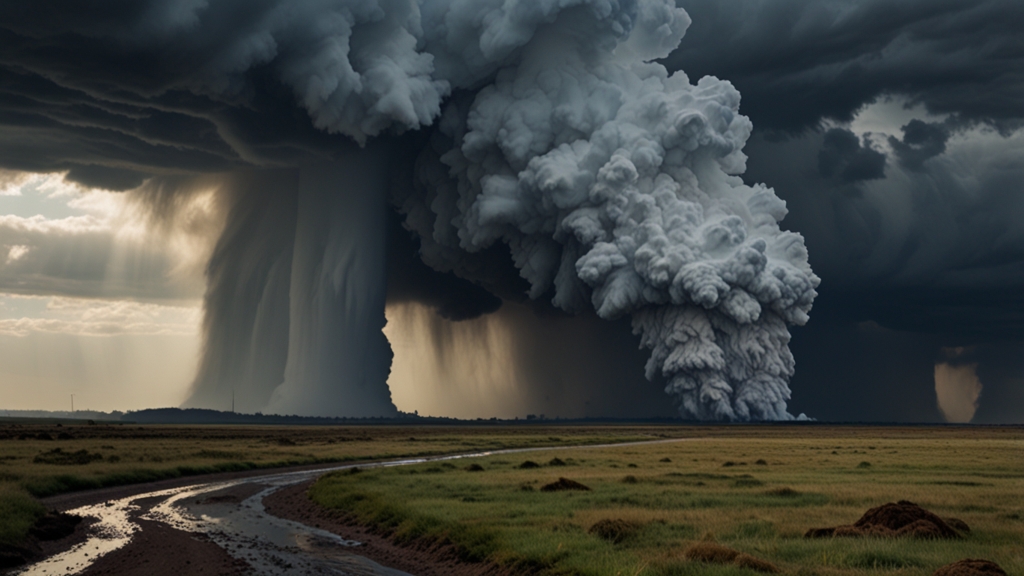The Philosophical Implications of Climate Change
Climate change is a multifaceted crisis that extends beyond the realms of science, technology, and economics, penetrating deeply into the core of philosophical inquiry. It challenges foundational beliefs about humanity's place in the world, our ethical responsibilities, and the nature of our interconnection with the environment. This article delves into the philosophical implications of climate change, exploring notions of ethics, existential risk, and environmental stewardship.
Ethics and Responsibility
At the heart of the philosophical discourse on climate change lies the question of ethics. Who is responsible for mitigating its effects, and to whom do we owe these responsibilities? The ethics of climate change can be examined through various lenses, including utilitarianism, deontology, and care ethics.
"We are the first generation to feel the sting of climate change, and we are the last generation that can do something about it." - Jay Inslee
Utilitarian perspectives emphasize the greatest good for the greatest number, urging immediate action to lessen suffering and save lives. Deontological ethics, on the other hand, focus on duty and principles, suggesting that we have a moral obligation to protect the environment regardless of the consequences. Care ethics highlight the importance of relational interdependence and the nurturing aspects of human behavior towards the natural world.
Intergenerational Justice
Climate change also brings into sharp relief the concept of intergenerational justice. Philosophically, this involves considering the rights and welfare of future generations who will bear the consequences of today's environmental decisions. The challenge is to balance current developmental needs with the rights of those yet to arrive.
This raises critical questions: Do future people have rights? If so, what are our obligations to them, and how should these shape our policies today? Intergenerational justice demands a long-term perspective, advocating for sustainable practices that ensure the wellbeing of both present and future inhabitants of Earth.
Existential Risk and Human Survival
Another profound philosophical implication of climate change is its status as an existential risk. Unlike other global threats that may affect significant portions of the population, climate change has the potential to disrupt the entire biosphere, threatening the very survival of human civilizations.
"Climate change is not just an environmental issue; it is a matter of survival." - Ban Ki-moon
Existential risks force us to evaluate priorities and values from a global perspective. What should humanity prioritize when faced with potential extinction? This question isn't merely academic; it requires urgent and practical responses, fostering global cooperation and long-term planning beyond political and economic interests.
The Human-Nature Relationship
Climate change fundamentally challenges the traditional dichotomy between humans and nature. In Western philosophy, nature has often been seen as a resource for human exploitation. Climate change, however, underscores the interconnectedness of all life forms and the planet's ecological systems.
This shift calls for a reassessment of anthropocentrism, the belief that human beings are the central or most significant species on the planet. Philosophers advocate for a more ecocentric or biocentric approach, where intrinsic value is attributed to all living beings and ecosystems. Such philosophies urge us to recognize that our survival is inextricably linked to the health of the natural world.
Conclusion
The philosophical implications of climate change extend far beyond its immediate physical and economic impacts. It compels us to reconsider our ethical frameworks, our obligations to future generations, the existential risks we face as a species, and our relationship with the natural world. Addressing climate change effectively demands not only scientific and political action but also a profound philosophical shift in how we perceive and interact with our environment.
"In the end, our society will be redefined not simply by the technologies we create, but by the choices we make about how to use them." - Carl Sagan
Ultimately, climate change is as much a philosophical challenge as it is a scientific one, urging humanity to reflect deeply on its values and responsibilities in an interconnected global community.










